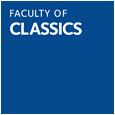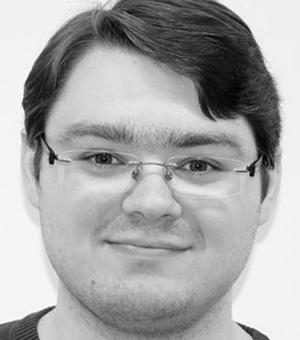Dr Simon Fries
Qualifications: Bachelor of Arts and Master of Arts in Historical-Comparative Linguistics and Philosophy (University of Cologne), Doctorate in Historical-Comparative Linguistics (University of Cologne)
ORCID ID: https://orcid.org/0000-0002-3865-9914
Link to college page:
Prior to taking up my position at Oxford I worked as a researcher at the Institute of Linguistics (Department of Historical-Comparative Linguistics) and the Collaborative Research Centre on "Prominence in Language" at the University of Cologne, where I also received my doctorate in Historical-Comparative Linguistics.
I take great interest in all aspects of language change and language typology, especially sound change and morphosyntactic change, the spatiotemporal conditions of language change, and the interaction of morphosyntax and prosody. So far my research has focussed on the Indo-European languages (including the classical languages, Old and Middle Indo-Iranian, Balto-Slavic, and a variety of other Indo-European languages) and the Yeniseian languages, a group of Paleo-Siberian languages. Apart from this, I am also interested in language philosophy.
Typology of language change; Diachronic and historical-comparative linguistics; Indo-European Linguistics; Yeniseian/Paleo-Siberian historical linguistics; Phonological, morphological and syntactic change; Interaction of prosody and syntax; Classical Philology; Language philosophy
So far I have given lectures or taught courses on Indo-European, Greek and Latin historical phonology, Homeric Greek, Sanskrit (Classical and Vedic), and the interdiscplinary discourse of linguistics and philosophy
Full Publications: Simon Fries full list of publications 2025
Selected Publications:
Fries, Simon and Natalie Korobzow (2024). On the dating of sound changes and its implications for language relationship. The case of Proto-Yeniseian *p- > Ket h-, Yugh f-. Diachronica. DOI: 10.1075/dia.23030.fri (online first).
Fries, Simon (2022–2023). On the Origin of Greek First Person Singular Optatives in -οιμι, Their Relation to Church Slavonic Optatives in -ěmь, and the Original Function of Primary and Secondary Endings in Proto-Indo-European. Die Sprache 55. 95–152.
Fries, Simon and Eugen Hill (2022). Insights into the diachrony of the East Baltic subjunctive mood. Baltistica 57(1). 5–44.
DOI: 10.15388/Baltistica.57.1.2466.
Fries, Simon (2022). Über die Herkunft der langvokalischen Konjunktive des Typs hom. ἐθέλωμι, ἐθέλῃσθα, ἐθέλῃσι [On the origin of the Homeric long-vowel subjunctive forms of the type ἐθέλωμι, ἐθέλῃσθα, ἐθέλῃσι]. Glotta 98. 148–173. DOI: 10.13109/glot.2022.98.1.148.
— (2021b). Why and How Do New Tense Formations Arise? – On the Emergence of the Vedic So-Called Periphrastic tā́-Future. Historische Sprachforschung 134. 96–165. DOI: 10.13109/hisp.2021.134.1.96.
— (2021a). A law of vowel lengthening before two word‑final dentals in Early Proto‑Indo‑European. Its morphological consequences, and its implications for the relation between Anatolian and the rest of Indo‑European. International Journal of Diachronic Linguistics and Linguistic Reconstruction 18. 1–142. DOI: 10.29091/9783752001013.
— (2018–2019)[2021]. Sandhi and syntax – Is there prosodic marking of morpho-syntactic relations in Old Indo-Aryan? Die Sprache 53(2). 153–226.




